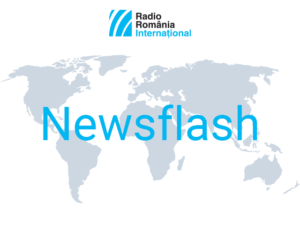Romania is one of the countries where the EU might increase its defence production capacity.
Fifteen companies from 11 countries, Romania included, have been identified as able to start production in the defence industry, in the context of the EU’s 3-pillar plan to boost ammunition deliveries to Ukraine.
EUR 1 bln will be disbursed to plants for deliveries from existing stockpiles. Another EUR 1 bln will be spent to help ammunition plants replenish depleted stockpiles, while the 3rd pillar aims at increasing the bloc’s defence industry’s capacity for the longer term.
Romanian facilities are among those that will be able to help cover Ukraine’s ammunition demand, but they need investments. This is one of the reasons why the European Commissioner for internal market, Thierry Breton, has traveled to Romania and had meetings with senior officials.
After his talks with PM Nicolae Ciucă, the European Commissioner said he was confident Romania would be able to play an even more important role in the EU defence industry, and added that Bucharest’s earmarking 2.5% of GDP for defence this year proves that Romania understands that this expenditure contributes not only to protecting the country, but to protecting the European continent as well.
Thierry Breton also said that, given that the EU has committed to support Ukraine’s efforts to withstand Russia’s aggression, we must make sure we have the capacity to deliver the equipment and ammunition it needs, including by boosting EU production capacity.
In turn, PM Nicolae Ciucă emphasized that strengthening the defence industry would help improve Romania’s resilience and capacity to handle future challenges.
After the meetings with Romanian officials in Bucharest, the European Commissioner visited two defence industry factories run by Romarm, Romania’s chief producer and provider of military equipment and services, present in over 50 other markets in Europe, America, Asia and Africa. Romarm is currently trying to revamp its production units, either through partnerships with private companies, or through EU funded projects.
Also in Bucharest these days is the chair of NATO’s Military Committee, admiral Rob Bauer, for talks focusing on the security situation at the Black Sea, on NATO’s deterrence and defence missions, and on this year’s main training events.
He discussed with the foreign minister Bogdan Aurescu the preparations for the NATO summit due in Vilnius in July and the implementation of the decisions made at the Madrid summit. While at the headquarters of the Romanian Defence Ministry, Rob Bauer also had talks with the line minister, Angel Tîlvăr, and with the chief of general staff, gen. Daniel Petrescu.
NATO remains a core pillar of Romania’s security policy, Daniel Petrescu said, and added that the Romanian Army is always improving its quick and efficient response capacity. Since its first day as a NATO member, Romania has proved its dedication to the Alliance, and has made it clear it understands the value of collective defence, admiral Rob Bauer pointed out in turn.
Mihai Pelin, Radio Romania International











